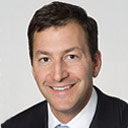H. Christopher Boehning

October 28, 2008 | New York Law Journal
A Reasonable Route to ESI ConfidentialityH. Christopher Boehning and Daniel J. Toal, partners at Paul, Weiss, Rifkind, Wharton & Garrison, review a recent federal District Court decision holding that counsel may designate an entire document as "confidential" during discovery when only portions of that document contain confidential material, which offers some important guidance - and reassurance - for litigators.
By H. Christopher Boehning and Daniel J. Toal
11 minute read

August 02, 2011 | New York Law Journal
The Ethics on Evidence From Social Networking SitesH. Christopher Boehning and Daniel J. Toal of Paul, Weiss, Rifkind, Wharton & Garrison write that although the ethics opinions from three New York bar associations address some of the ethical parameters within which lawyers may exploit information from social networking sites provide much needed guidance, they address only a few of the many ethical issues lawyers may confront.
By H. Christopher Boehning and Daniel J.Toal
10 minute read

August 31, 2007 | Law.com
Caution: Private E-Mails Might Turn PublicRecent headlines highlight the vanishing line between professional and private e-mail accounts. Attorneys are likely to face an increasing number of requests for access to any business-related e-mail on the employee's home computer and online e-mail account.
By H. Christopher Boehning and Daniel J. Toal
13 minute read

June 04, 2010 | Law.com
Is the Final 'Qualcomm' Ruling a One-Time Pass?H. Christopher Boehning and Daniel J. Toal of Paul Weiss consider the final Qualcomm opinion as a one-time pass for attorneys who had been through enough. The judge may have declined sanctions because the Qualcomm attorneys had already been sanctioned in her prior ruling.
By H. Christopher Boehning and Daniel J. Toal
8 minute read
October 24, 2006 | New York Law Journal
Amended Rule 45John F. Baughman and H. Christopher Boehning, partners at Paul, Weiss, Rifkind, Wharton & Garrison, write that case law on non-party cost-shifting has been slow to develop, but a few lessons are available. Take, for example, the doctrine of mutually assured destruction, which led to a half-century of uneasy standoff between the United States and the former Soviet Union during the Cold War. The doctrine also sometimes has a moderating influence on the scope of parties' electronic discovery.
By John F. Baughman and H. Christopher Boehning
9 minute read

August 05, 2010 | Legaltech News
Litigants Fail to Heed Lessons of 'Victor Stanley'For counsel who missed Victory Stanley's warning to conduct quality control on keyword search terms, attorneys H. Christopher Boehning and Daniel J. Toal point to a recent ruling that states loud and clear: Counsel who fail to conduct quality control risk involuntarily waiving privilege.
By H. Christopher Boehning and Daniel J. Toal
13 minute read
February 28, 2006 | New York Law Journal
Preproduction Privilege ReviewJohn F. Baughman and H. Christopher Boehning, partners at Paul, Weiss, Rifkind, Wharton & Garrison, write that the growing volume of electronic data and number of discovery demands that require production of electronic data have led to practices that are designed to ease the burdens associated with reviewing and producing vast quantities of electronic data.
By John F. Baughman and H. Christopher Boehning
9 minute read

August 25, 2009 | New York Law Journal
Spoliation Leads to Severe Sanctions in Recent CasesH. Christopher Boehning and Daniel J. Toal, partners at Paul, Weiss, Rifkind, Wharton & Garrison, review two recent cases that make it clearer than ever that parties who shirk their obligations to preserve and produce ESI do so at great peril. In one, the court precluded the wrongdoers from asserting their affirmative defense during the remainder of the case and went on to grant summary judgment for plaintiffs on all claims. In the other case, still ongoing, the judge held that default judgment was not warranted but concluded it would "fairly compensate" plaintiff to grant an adverse-inference instruction to the jury concerning the spoliated evidence, a serious blow to the prospects of the defendant.
By H. Christopher Boehning and Daniel J. Toal
9 minute read

April 28, 2009 | New York Law Journal
Federal E-DiscoveryH. Christopher Boehning and Daniel J. Toal, partners at Paul, Weiss, Rifkind, Wharton & Garrison, write: Evidently weary of deficient keyword searches, U.S. Magistrate Judge Andrew J. Peck recently issued a self-styled "wake-up call" to members of the bar in the Southern District. Instead of attorneys designing keywords without adequate information "by the seat of their pants," Magistrate Judge Peck appealed for keyword formulations based on careful thought, quality control, testing and cooperation.
By H. Christopher Boehning and Daniel J. Toal
11 minute read
June 26, 2007 | Law.com
'Peskoff,' Cost-Shifting and Accessible DataNow that the Federal Rules of Civil Procedure have been modified to acknowledge explicitly the role electronic information plays in contemporary legal disputes, the uneasy process of adapting rules written in the era of typewriters and mimeographs to a world of e-mail and metadata has been replaced by a new task: determining how the recent amendments have -- and have not -- altered the existing legal landscape concerning electronic discovery.
By H. Christopher Boehning and Daniel J. Toal
14 minute read
Trending Stories
- 1Legal Tech's Predictions for Knowledge Management in 2025
- 2Fenwick Shutters Shanghai Office
- 3Litigators of the (Past) Week: Defending Against a $290M Claim and Scoring a $116M Win in Drug Patent Fight
- 4Litigator of the Week Runners-Up and Shout-Outs
- 5Am Law 50's Head Count 'Holding Pattern' Could Trickle Down
More from ALM
- Scan In Progress: Litigators Leverage AI to Screen Prospective Jurors 1 minute read
- Legal Speak at General Counsel Conference East 2024: Match Group's Katie Dugan & Herrick's Carol Goodman 1 minute read
- Legal Speak at General Counsel Conference East 2024: Eric Wall, Executive VP, Syllo 1 minute read



